These Are the 6 Best Feng Shui Tips We Learned in 2023 That We'll be Taking into the New Year
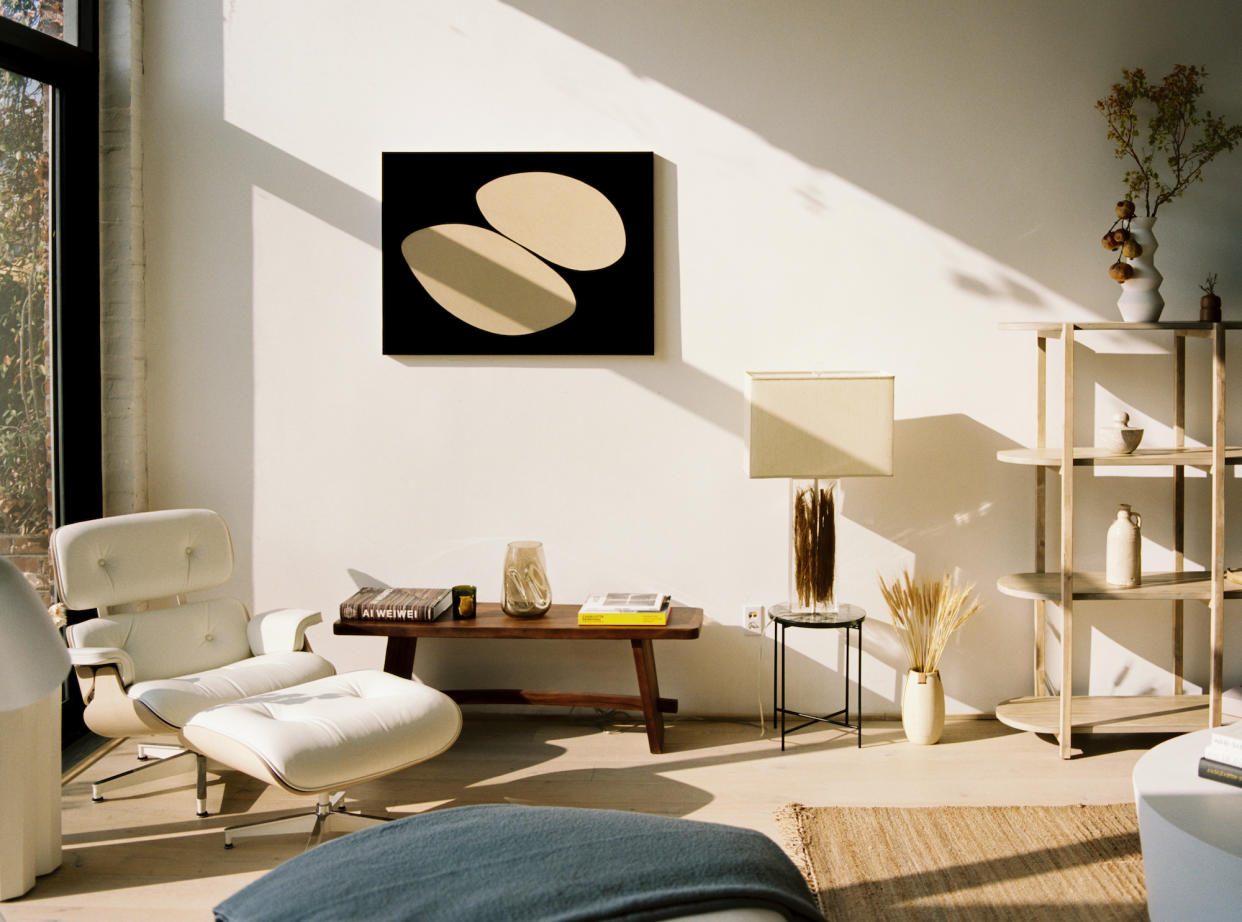
Feng Shui is an essential component of the designer's toolkit. The ancient Chinese art is snubbed by some, but we strongly believe that giving a little bit of thought to your furniture placement can go a long way in creating a more harmonious home. And, whether you follow the concept or not, having a few principles to follow when it comes to designing your home can hardly cause any harm.
Through consulting a series of experts, we added many a Feng Shui rule to our design tool belt this past year. To help guide our decisions as we head into 2024, we've rounded up the very best to take forward that we believe everyone should know. From perfecting the art of your bed's commanding position to living room Feng Shui rules like the advised sofa placement for the best energy flow, here's everything you need to know.
1. Avoid oversized bedroom lighting
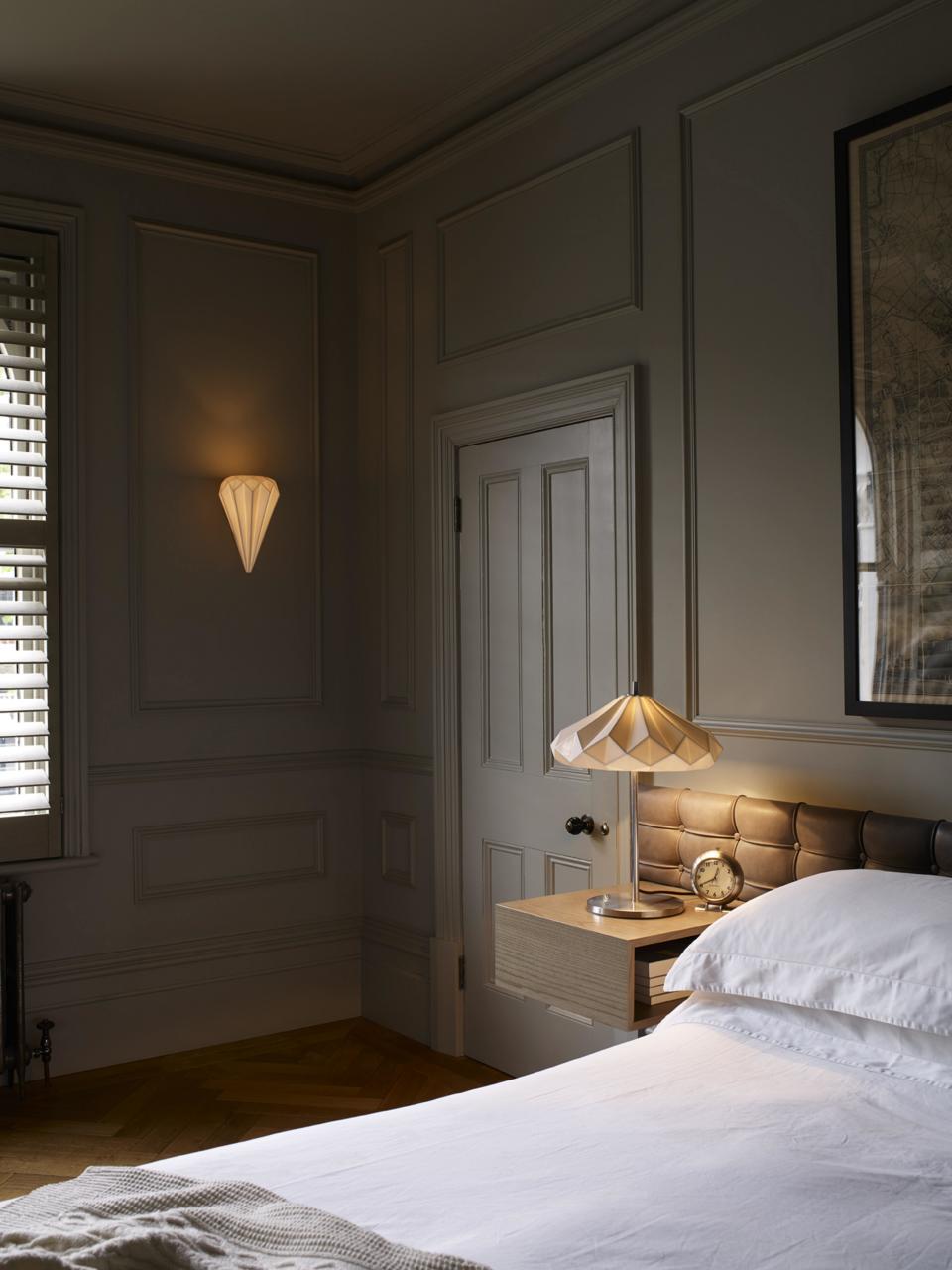
Lighting often comes as an afterthought, and while it might not be your first thought when it comes to Feng Shui, it can have a huge impact on the overall feel of a room. In the bedroom especially, Feng Shui says that oversized statement lighting is one of the biggest bedroom design mistakes.
In fact, according to Feng Shui expert Karen Rauch Carter, it's not helpful to have anything suspended above the bed at all. 'Lights, fans, beams, skylights - all these things put energy pressure one way or another on the person sleeping there,' she says. ‘A flat ceiling above the bed is best. This room is for "yin" quiet time and rejuvenation so a very bright "active" type of light level or a harsh type of color of light is not recommended.'
2. Avoid placing a bed under a window
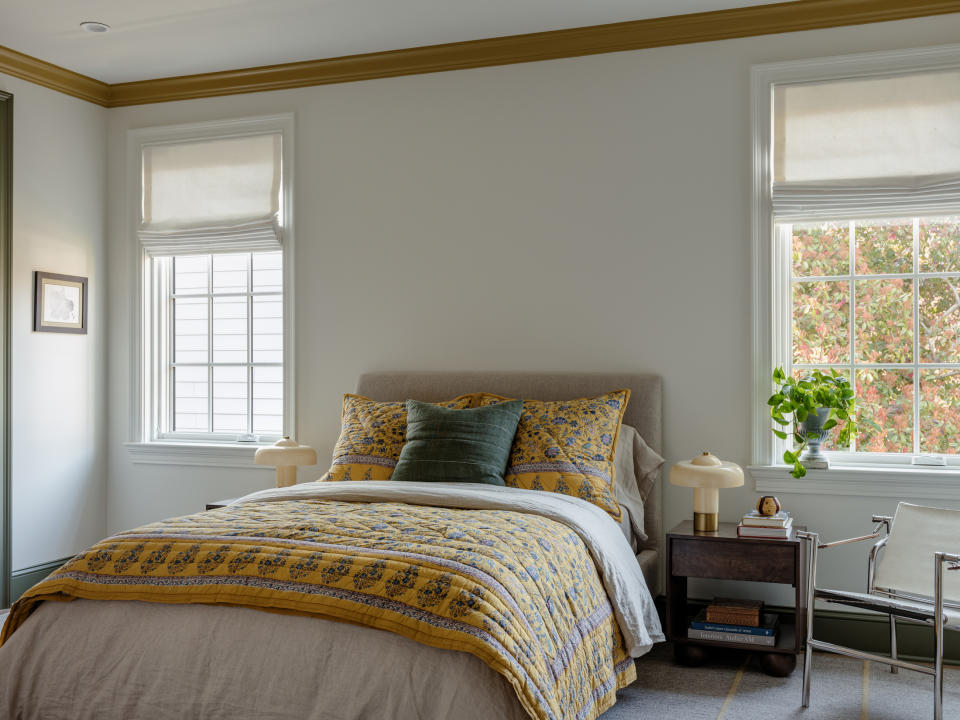
Bedroom Feng Shui also includes some important rules around bed placement, and positioning your sleep zone under a window is strongly advised against. 'From the standpoint of energy flow, a bed placed in front of a window may impede the steady flow of qi (energy) in the space, which may have an impact on the quantity and quality of sleep as well as general well-being,' says Sylvia Li, an interior designer at Open Spaces Feng Shui.
This is because a bed is considered a grounding element when it comes to Feng Shui principles and so placing one in front of a window could result in a lack of support and stability. As Sylvia notes: 'The presence of a window behind the bed can remove the sense of security and create a sensation of vulnerability during sleep. If you want to sleep better consider switching up your bedroom layout so your bed isn't directly in line with your window.
3. Harness the commanding position
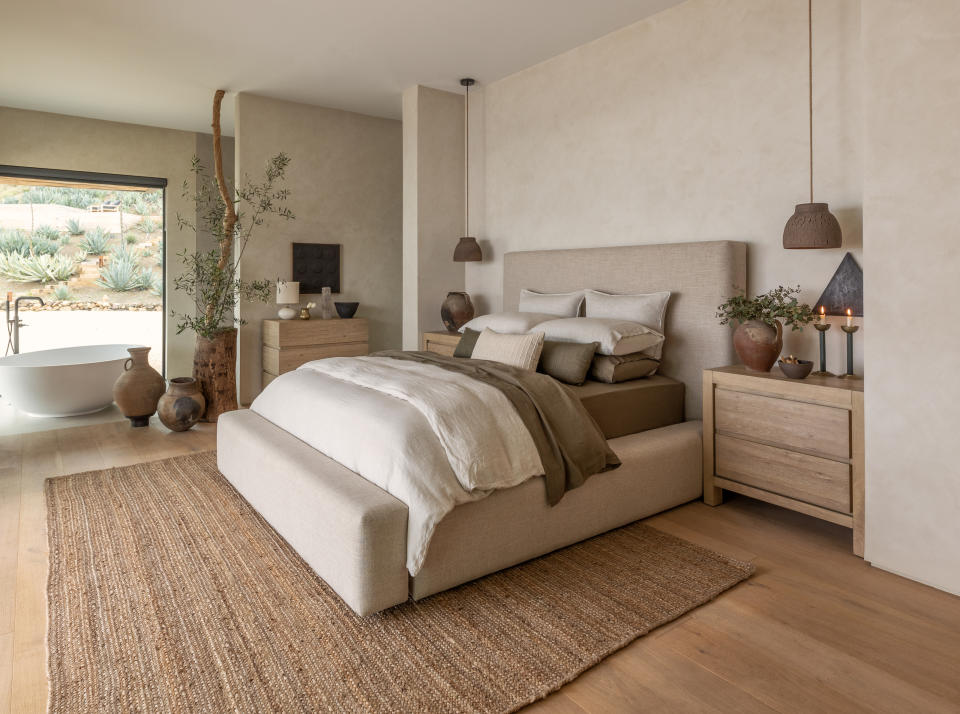
In close relation is the concept of the commanding position. This dictated where a bed should be placed and, once again, your bedroom window has a part to play. 'Ideally, the bed should be placed diagonally across from the window, with the headboard leaning against a strong wall for support and stability,' says Sylvia. 'This arrangement provides a sense of security while sleeping and enables a balanced energy flow. If a diagonal arrangement is not feasible, you can set up the bed against the wall parallel to the window.'
Mastering the command position is all about strategically placing your bed in a way that empowers you the most, offering a clear view of the door and an overview of the room. 'You ideally want space on either side of the bed, with the door diagonally opposite,' says Laili of The Meazured Life. 'This is so you can see anyone entering the room, but also not directly opposite the doors, either.' Direct alignment with the room's entrance door should be avoided at all costs because this offers a direct channel for energy, or chi, to rush in and disrupt the peace of your sleep sanctuary.
4. Choose a solid headboard
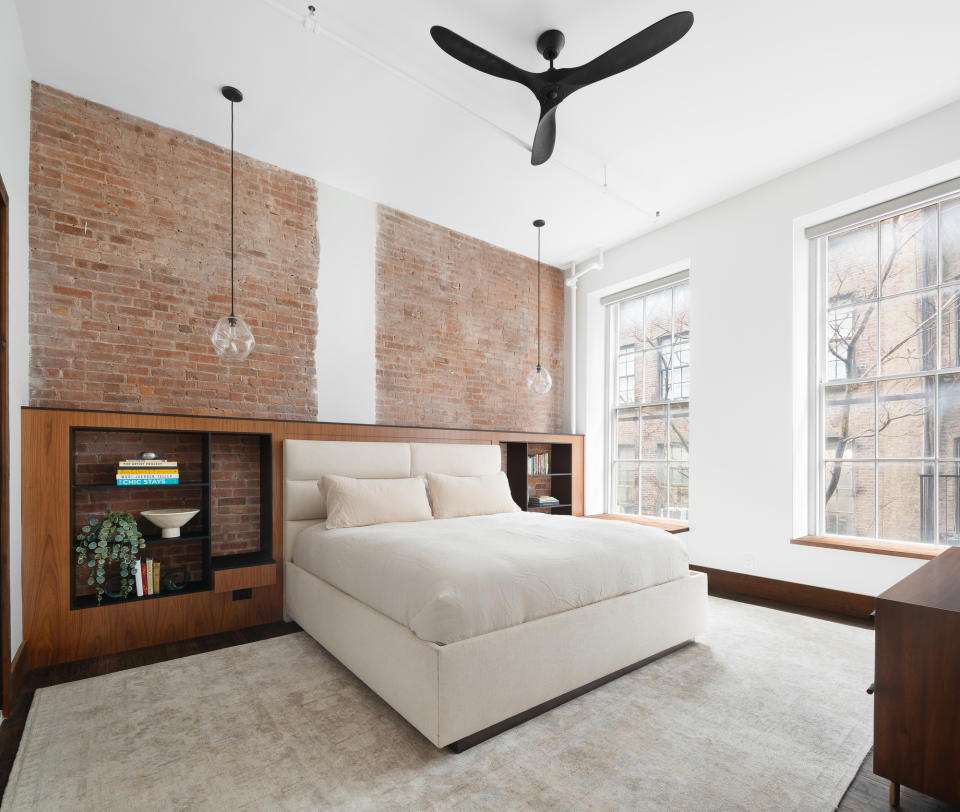
We promise Feng Shui isn't entirely centered around the bedroom, but some of the key principles of the theory apply to this specific room. One less likely tip we learned this year is the importance of a Feng Shui headboard, and why a solid one is always advised.
'It's best to choose a headboard that is solid and made of natural materials, such as wood or upholstered fabric,' Sylvia says. 'Wooden headboards are ideal as they represent the wood element, which is associated with growth, vitality, and harmony.'
In the case of upholstered headboards, the frame inside should be wooden where possible, as opposed to foam. 'The headboard should also have a gentle curve to promote a smooth flow of energy (Qi) around the bed, fostering tranquility and better sleep,' adds Sylvia.
5. Have a clear path to your front door

Feng Shui doesn't only apply to the inside of our homes but the surrounding space outdoors, too. Your front door design is a crucial element since it's a key place when it comes to energy flow. 'This means the path to the front door should be unobstructed and clearly visible,' says Jane Langof of Feng Shui Concepts. 'This is because the front of the home and the path leading to the front door represent the point where energy enters the home.'
This entryway Feng Shui rule also suggests you avoid having trees and poles in direct alignment with the front door. 'Trees and poles in direct alignment with the front door can also block the flow of energy into the home,' notes Jane. 'An attractive and clear path invites positive energy into the home.'
6. Consider where your sofa is in relation to your door
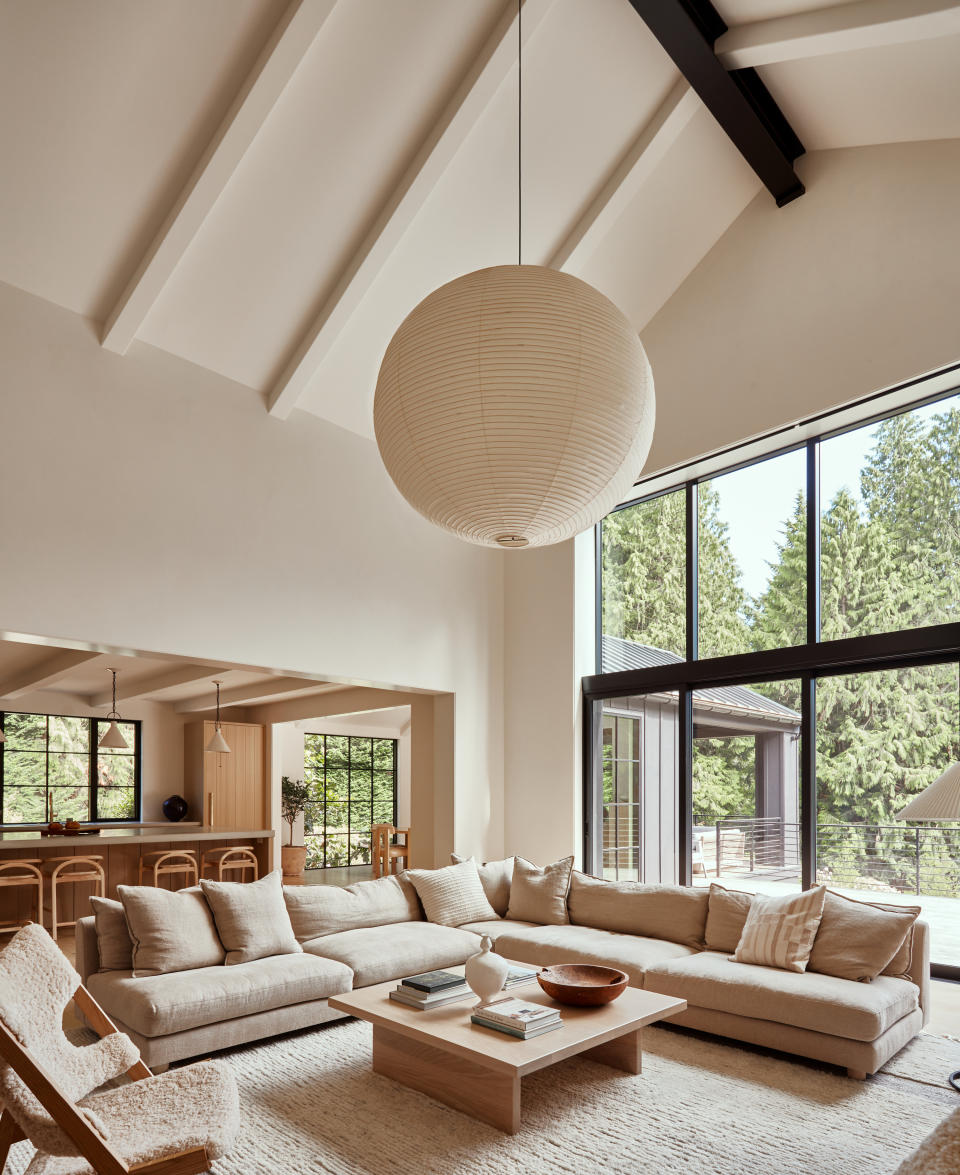
Your living room sofa placement might be restricted depending on the space available, but you must consider the flow of air around the room and, according to Feng Shui, pay close attention to where it is in relation to your doorway.
Feng Shui consultant Suzanne Roynon, says having the door in your sightline is preferable, but that it's a good idea to have something else in between. 'In Feng Shui, and also psychologically speaking, it's preferable to have something between the sofa and the door otherwise you may be left vulnerable to inauspicious energy whizzing through whilst you're relaxed on the sofa,' she says.
This doesn't need to be a wall or solid screen. 'A coffee table, credenza, screen, even a large plant, sculpture or shelf unit would work,' Suzanne adds. 'If that's totally impossible, a rug in a different shade to the floor would be a better option than nothing.'
Follow these six simple Feng Shui principles and you're sure to start 2024 on the right foot by creating a space that feels 'zen'.

'Feng Shui Made Simple' Book
Price: $12.97
Format: Paperback

'Mindful Homes' Book
Price: $15.30
Format: Paperback

'The Holistic Home' Book
Price: $12.99
Format: Hardback
